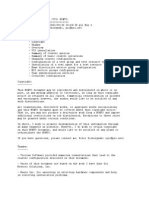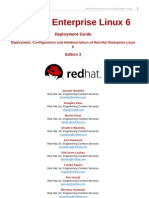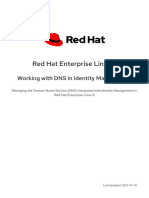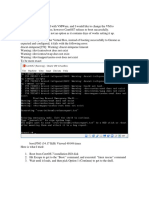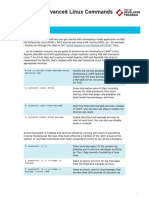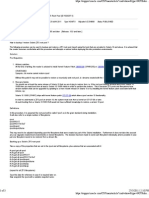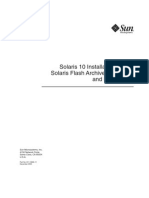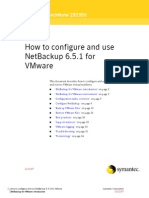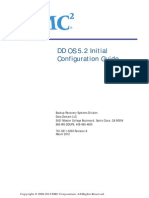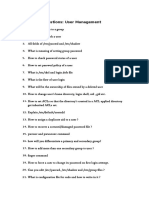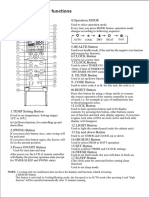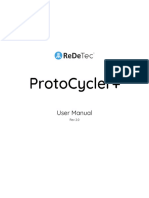0% found this document useful (0 votes)
194 views10 pagesRedhat Interview Questions
This document contains a list of 100 interview questions related to Red Hat Enterprise Linux, divided into basic, intermediate, and advanced levels. The basic questions cover Linux fundamentals like the kernel, GNU, file systems, permissions, and common commands. The intermediate questions delve deeper into topics like the boot process, LVM, DNS, networking, and shell scripting. Advanced questions discuss more complex topics such as RAID, IPv6, routing, firewalls, SELinux, encryption, and remote administration.
Uploaded by
benx10tenCopyright
© © All Rights Reserved
We take content rights seriously. If you suspect this is your content, claim it here.
Available Formats
Download as PDF, TXT or read online on Scribd
0% found this document useful (0 votes)
194 views10 pagesRedhat Interview Questions
This document contains a list of 100 interview questions related to Red Hat Enterprise Linux, divided into basic, intermediate, and advanced levels. The basic questions cover Linux fundamentals like the kernel, GNU, file systems, permissions, and common commands. The intermediate questions delve deeper into topics like the boot process, LVM, DNS, networking, and shell scripting. Advanced questions discuss more complex topics such as RAID, IPv6, routing, firewalls, SELinux, encryption, and remote administration.
Uploaded by
benx10tenCopyright
© © All Rights Reserved
We take content rights seriously. If you suspect this is your content, claim it here.
Available Formats
Download as PDF, TXT or read online on Scribd
/ 10












